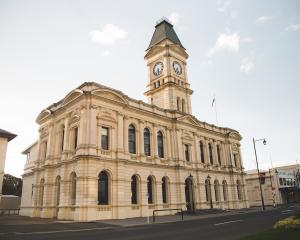The weekly black bag rubbish collection in the Waitaki district is to go, saving ratepayers about $70,000 a year.
The Waitaki District Council yesterday instructed its staff to phase out the black bag collection.
Only about 17% of properties use the service, including those in Oamaru, despite everyone paying a rate for it.
Others had opted for a collection service offered by contractors, including Transpacific, which operates an extensive wheelie-bin weekly collection throughout the district.
All ratepayers will now have to use a wheelie-bin service.
The council also looked at rubbish transfer stations in Hampden and Herbert, questioning why there should be two so close to each other.
Councillors decided to close the Herbert transfer station, which will save about $40,000 a year.
Last year, the council had proposed closing the Hampden transfer station but kept it operating after a community group investigated setting up its own resource recovery operation.
Consumers on 21 rural water schemes in the Waitaki district face paying out between $1.7 million and $3.8 million over the next five years to upgrade their schemes to meet the Government's new drinking water standards.
That is what they will pay in rates, but the total cost of all the projects in almost $9.5 million, the rest coming from development contributions, depreciation and, for some, Government subsidies.
The council voted to include the upgrading in its forward budgets, starting with the Lower Waitaki scheme next year and ending in 2013-14 with the Awamoko, Kauru Hill, Otekaieke, Stoneburn and Windsor schemes.
The council's assets committee chairman, Cr Alistair Mavor, described the cost as frightening - just so communities could have so-called drinking water.
Assets group manager Neil Jorgensen said the council was required by the Government to do the work to meet the drinking water standards.
The work would be done by loans, with scheme consumers repaying those spread over a number of years.
However, the actual detail of how to upgrade the water schemes has not yet been finalised.
It could range from upgrading existing treatment plants through to treatment at point of use - in the houses and premises of consumers.












